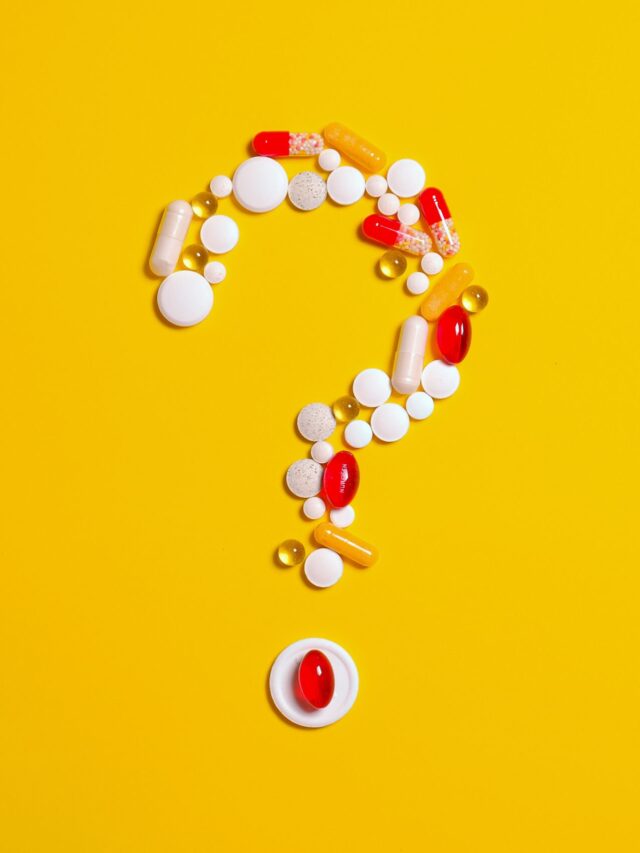Pharmacotherapeutics is the use of pharmacological knowledge in conjunction with illness knowledge to prevent, mitigate, or cure disease. Pharmacotherapeutics includes the selection of the most appropriate medicine, dose, and length of treatment while considering a patient’s individual characteristics.
Introduction
Hello there! Have you ever wondered how that tiny pill you pop in pulls you out of your sick bed? Well, if you’re shaking your head with a ‘yes’, you’re about to take a thrilling tour into the fascinating world of Pharmacotherapeutics. So, brace yourself!
Pharmacotherapeutics: Not Just a Fancy Word!
You might be scratching your head, thinking, “What on Earth is Pharmacotherapeutics?” So let’s break it down without further ado.
Defining Pharmacotherapeutics
Pharmacotherapeutics, often tossed around in the medical realm, is the science of using drugs to treat diseases effectively, safely, and economically. It’s like a jigsaw puzzle where each piece is a drug molecule, each fitting into the grand scheme of healthcare. (What is a pharmacotherapeutics?)
The Scope of Pharmacotherapeutics
Pharmacotherapeutics’ application spans a wide range of illnesses and ailments. In order to develop a thorough treatment plan requires knowing the patient’s demands, the illness condition, and the drug’s interaction with the body.

The Pillars of Pharmacotherapeutics
Pharmacotherapeutics rests on three pillars: Pharmacodynamics, Pharmacokinetics, and Pharmacogenomics.
Pharmacodynamics: The Drug’s Effect on the Body
This aspect examines how drugs work in the body to bring about their therapeutic effects. It’s like a secret dance between the drug and the body, leading to a finale of wellness.
Pharmacokinetics: The Body’s Effect on the Drug
Pharmacokinetics, on the other hand, investigates how the body uses the drug. It all depends on what happens to the medicine after it enters your body and after it leaves.
Pharmacogenomics: The Role of Genes
This area of study focuses on how a person’s genetic composition impacts how they react to medications. To forecast a person’s response to a specific medicine is akin to reading their genetic code.
The Road to Effective Pharmacotherapeutics
Getting Pharmacotherapeutics right is no walk in the park. It’s a journey that requires a combination of experience, expertise, and empathy.
Understanding the Disease
Understanding the underlying causes of the disease is the first step in pharmacotherapy. It’s like playing detective as you look for leads to solve the sickness riddle.
Choosing the Right Drug
Choosing the right drug for the right patient is crucial in Pharmacotherapeutics. It’s a bit like matchmaking – finding the perfect match between the drug and the disease.
Monitoring the Treatment
Regular monitoring of the treatment is essential to ensure the drug is doing its job without causing any unwarranted side effects. It’s like keeping an eye on the gauges while driving, ensuring everything’s running smoothly.
The Future of Pharmacotherapeutics
The field of Pharmacotherapeutics is constantly evolving, driven by technological advancements and scientific discoveries.
Personalized Medicine
With the rise of Pharmacogenomics, personalized medicine is becoming more of a reality. It’s like having a tailor-made suit, but this time, it’s a treatment plan designed just for you!
AI in Pharmacotherapeutics
Artificial Intelligence (AI) is revolutionizing Pharmacotherapeutics by making drug discovery and patient monitoring more efficient. It’s like having a supercomputer as a sidekick, aiding in every step of the therapeutic process.
Pharmacotherapeutics and You
Pharmacotherapeutics isn’t just about drugs and diseases. It’s about you – the patient. It’s about understanding your unique needs and finding the best therapeutic solution for you.
Empowering Patients
Pharmacotherapeutics plays a vital role in empowering patients by providing them with effective treatment options. It’s like equipping you with the right tools to battle your health issues.
Improving Quality of Life
By managing symptoms and curing diseases, Pharmacotherapeutics aims to improve the quality of life for patients. It’s like turning the volume down on your disease, letting you enjoy the melody of life.
Frequently Asked Questions
What’s the goal of Pharmacotherapeutics?
The primary goal of Pharmacotherapeutics is to optimize patient health by using drugs to prevent, diagnose, and treat diseases.
How does Pharmacotherapeutics differ from Pharmacology?
While pharmacology examines drug action more broadly, pharmacotherapeutics narrows in on the use of pharmaceuticals for therapeutic purposes.
Why is Pharmacotherapeutics important?
Pharmacotherapeutics is vital as it guides healthcare providers in choosing the right drug for the right patient at the right dose. It’s like the compass guiding the ship of medical treatment.
Can Pharmacotherapeutics help in personalized treatment?
Absolutely! With advancements in Pharmacogenomics, Pharmacotherapeutics can tailor treatments based on an individual’s genetic makeup.
How is AI influencing Pharmacotherapeutics?
AI is transforming Pharmacotherapeutics by streamlining drug discovery and development, predicting drug interactions, and personalizing treatment plans.
Is Pharmacotherapeutics Related to Pharmacy Practice?
Yes, Pharmacotherapeutics is an essential part of Pharmacy practice. It helps pharmacists understand the therapeutic uses of drugs, enabling them to provide better patient care.
Conclusion
Whew! That was quite a ride, wasn’t it? By now, you should have a pretty good understanding of what Pharmacotherapeutics is all about. From defining the term to exploring its different facets, we’ve journeyed through the art and science of using drugs to heal and cure. As we move forward, the field of Pharmacotherapeutics promises to bring about significant advancements in personalized medicine, paving the way for a healthier future. So, the next time you pop that pill, remember the world of Pharmacotherapeutics that stands behind it, working tirelessly to keep you hale and hearty!
Q: What role does Pharmacotherapeutics play in optimizing patient treatment outcomes?
Pharmacotherapeutics optimizes patient treatment outcomes by considering factors like medication efficacy, safety, and individual patient characteristics to tailor treatment plans.
Q: How does Pharmacotherapeutics ensure the optimization of medication dosages for patients?
Pharmacotherapeutics utilizes pharmacokinetic principles and patient-specific factors to optimize medication dosages, ensuring effectiveness while minimizing adverse effects.
Q: Can Pharmacotherapeutics help optimize medication therapy for complex medical conditions?
Yes, Pharmacotherapeutics specializes in managing complex medical conditions, taking into account comorbidities, drug interactions, and individual patient needs to optimize therapy.
What is pharmacotherapeutics in pharmacology?
Pharmacotherapeutics is the application of pharmacology in the practice of medicine. It focuses on the effective and safe use of medications to treat diseases and promote optimal patient outcomes. It involves understanding the mechanisms of action, therapeutic uses, and potential side effects of drugs, and applying this knowledge to develop personalized treatment plans for individual patients
what is Woo and Robinson pharmacotherapeutics test bank
Woo and Robinson Pharmacotherapeutics refer to a textbook or educational resource authored by individuals named Woo and Robinson, which may include a test bank. Test banks typically contain a collection of exam-style questions and answers that instructors use for assessments. If you are enrolled in a pharmacotherapeutics course that uses the Woo and Robinson Pharmacotherapeutics textbook,
pharmacotherapeutics for advanced practice nurse prescribers 5th edition test bank
pharmacotherapeutics for advanced practice nurse prescribers 5th edition test bank if you need this join us ASAP
what are the pharmacotherapeutics of epinephrine action?
Epinephrine’s pharmacotherapeutic actions include vasoconstriction, bronchodilation, increased heart rate and cardiac output, inhibition of allergic reactions, and metabolic effects such as increasing blood sugar levels and promoting lipolysis. These actions make it useful in treating anaphylaxis, acute asthma attacks, cardiac arrest, shock, and allergic reactions.
What are the meaning of pharmacotherapeutic?
Pharmacotherapeutics refers to the study and application of pharmacology principles in the practice of medicine. It involves the use of medications or drugs to treat diseases, alleviate symptoms, and improve patient outcomes.
What are examples of pharmacotherapeutics?
Examples of pharmacotherapeutics include antibiotics for bacterial infections, antihypertensives for high blood pressure, antidepressants for mood disorders, and anticoagulants for blood clotting disorders
What is a pharmacotherapeutics?
Pharmacotherapeutics refers to the study and application of using medications or drugs to treat diseases, manage symptoms, and improve patient outcomes by considering factors like drug selection, dosage, and patient-specific characteristics.

